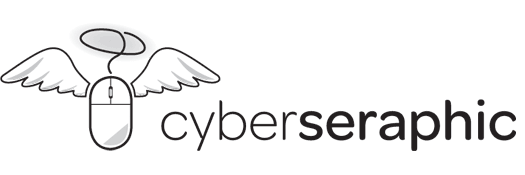On Andrew Chan and Myuran Sukumaran
When I first heard the news that Bali Nine ringleaders Andrew Chan and Myuran Sukumaran had received the death penalty, my initial reaction was indifference. My stance was that as much as I disagree with capital punishment, they had the misfortune to be caught for criminal activity in a country where it is practised, and that’s just too bad; there are plenty of other issues I would rather to direct my energies toward.
But then I found out I had a friend who knew Andrew directly (school friends, I think). He and his friends made impassioned pleas for people to look beneath the façade, to see the story of repentance and redemption. These guys, by their own admission, weren’t exactly always model citizens, and but for some “second chance” opportunities that they were lucky enough to have received ended up on the right path instead of the wrong one. For example:
Practically everyone who was in favour of the execution seemed to think that Chan and Sukumaran deserved what they got for doing what they did – that is, trafficking drugs. Most cite supporting arguments like how drugs continue to ruin many peoples’ lives, etc.
The problem I have with this view view is that it supposes that drug users are victims and in no way complicit for their role in the drug trade. Everybody knows that the drug trade, like every other business, works by supply and demand. Only, in this case, demand is generally attributed to addiction.
Now addiction’s supposed to be this physiological condition where people get hooked onto substances, after which they no can no longer help themselves and basically become victims. However, recent science is starting to uncover something interesting about addiction:
If you get run over today and you break your hip, you will probably be given diamorphine, the medical name for heroin. In the hospital around you, there will be plenty of people also given heroin for long periods, for pain relief. The heroin you will get from the doctor will have a much higher purity and potency than the heroin being used by street-addicts, who have to buy from criminals who adulterate it. So if the old theory of addiction is right — it’s the drugs that cause it; they make your body need them — then it’s obvious what should happen. Loads of people should leave the hospital and try to score smack on the streets to meet their habit.
But here’s the strange thing: It virtually never happens.
Excerpt from the Huffington Post: “The Likely Cause of Addiction Has Been Discovered, and It Is Not What You Think”
The article goes on to provide a thorough argument for the theory that addiction is a symptom of a lack of human connection. That is, addiction doesn’t exist when people have good social relationships. So bringing this back to Chan and Sukumaran: how hard is it to believe that they “got caught up in the wrong crowd” and did what they did because of a lack of positive social connections?
When they were jailed, they found themselves in an environment where they were able to form positive relationships with jailers and fellow inmates. Everything you read about their decade in prison points to the fact that they were thoroughly rehabilitated, and made positive contributions in their new environment.
All of which brings me to the conclusion that addicts and criminals are not so different from each other. Yet society is quick to assign blame to one and portray the other as the victim, when in reality they are both victims of (social) circumstances.
On reflection, this missive was needed much, much earlier, but as with most complex issues, it has taken a long time for me to process and come to an understanding that I felt comfortable sharing (not to mention the usual laborious process of converting my thoughts into a coherent piece of prose). So although it’s too late for Andrew and Myu, I hope that those among you who felt they deserved to die read this and consider how blessed we are to be friends. Maybe you saved me from a similar fate in the past, or will do so sometime in the future… and I you.

Hi Caesar.
I keep thinking about the fact that Andrew and I grew up in the same neighbourhood, a few years apart. I remember feeling depondent about high school life and my future, lacking the confidence and hope of forging a “successful” life my parents worked so hard to provide, much like Andrew had described in past interviews. Andrews story is typical of the immigrant story – parents working 2 or 3 jobs or run small businesses to make ends meet, leaving children unsupervised and disconnected. The choices he made as a 14 year old have taken him down a path that has ended in such heartache for his loved ones. How could he have known as a 14 year old he was to end up on death row?
I know we all make choices and we are not always blind to the consequences of those decisions, but what resonates in my heart is – it could have just as easily been me. If not for the grace of God – attending church from a young age (thanks mum), going to dojo every night with dad (thanks dad) I think I could have made some very bad decisions too. Certainly the opportunities to take drugs were there.
Andrew’ life and the way he faced his death has deeply moved me and inspired me to give thanks in all things continually, to treasure family and the people around me, to do something tangibly good for society. I hope Andrew can see his life was valuable and inspiring – and gives glory to God in this way.